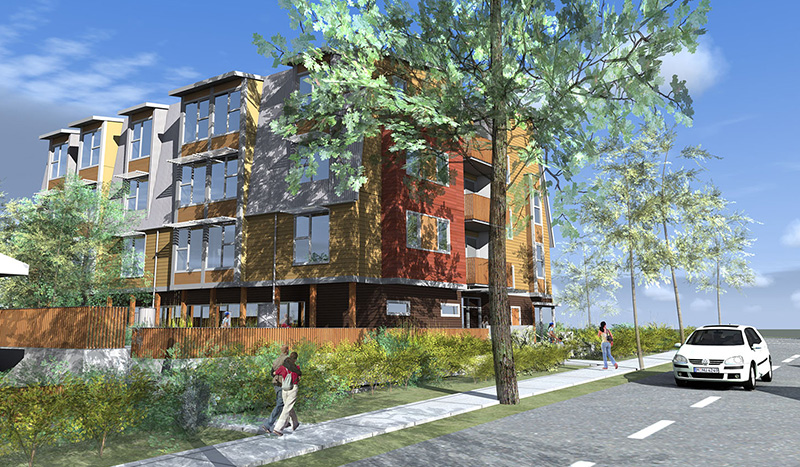
While meaningful efforts to develop solutions that counter the nation-wide issue of affordable housing have been successful, the demand for affordable housing far exceeds the supply. Today, Canada is the only member of the G8 countries without a national housing strategy.
For decades, there has been a strong undercurrent of activity among non-governmental organizations to address the lack of affordable housing in urban areas across Canada. It is with a passion and a vision to create more than just band-aid solutions to homelessness that these organizations operate. They dig deeper than the surface by rooting themselves in the community, understanding housing policy and politics, and advocating for the richness that comes with diversity in urban neighbourhoods.
Urban churches have a deep history of serving the homeless and those struggling with poverty – providing meals, temporary shelter and sometimes transitional housing. Leading housing projects or partnering with other faith and non faith-based organizations to work jointly on new development is an emerging way that congregations are responding to the urban housing need.
However, churches and non-profits are still bound by many of the same barriers that face private developers along with some unique challenges. These include:
- Competing for limited government funding
- Providing sufficient equity
- Securing additional “benevolent” financing
- Cost of “high-risk” insurance underwriting
- Assuming financial risk
- Relying heavily on external partnerships and work agreements
The landscape for affordable housing provision now relies heavily on municipalities and non-profit organizations, including churches, to provide local solutions. It is clear then that any grassroots effort made by neighbourhood churches should aim to employ a community economic development (CED) approach in their housing strategy.
In a presentation by Dennis Carr and Janet Kreda at the 2005 Canadian CED Network conference, the following six elements of a CED approach to housing were outlined:
- Equalization – development that improves the status of marginalized communities
- Social Change – development that creates systemic change
- Democratic – participatory processes with people creating institutions for themselves
- Local – initiatives that benefit a specific community or neighbourhood
- Training – provides construction trades, and housing development experience
- Holistic – accomplishes multiple objectives
By rooting themselves firmly in community, churches are able to truly serve and meet the needs of its neighbours through a holistic approach to community capacity building such as this.
This is the holistic approach that has been at the root of a community-led effort to build the Co:Here housing project in Vancouver – a joint initiative between Salsbury Community Society, Grandview Calvary Church and their funding partners. To date it has been a 10-year long journey that has built significant capacity within Salsbury and the church community to respond to systemic issues of homelessness, social isolation and affordable housing. As part of this capacity building, a new charitable foundation, Co:Here Foundation, has been created to lead the project development.
There is much hope embedded in the development of the Co:Here housing community. The key objective of the project is to improve the lives of vulnerable people in Grandview-Woodland neighbourhood by providing safe and affordable housing in an authentic, supportive community. As the Co:Here board seeks to close in on its final fundraising goal and gets closer to ground breaking, this is a story to tell.
Co:Here aspires to be a prototype for community housing that can be replicated in other parts of the city and encourage other churches and non-profits to use their property to create affordable housing that supports the most vulnerable in their neighbourhoods. Let’s get this one in the ground first.











